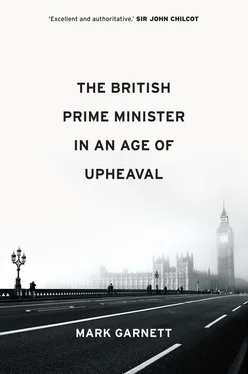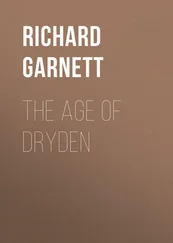Speaking outside No. 10 Downing Street on 4 May 1979, Margaret Thatcher declared that being asked to form a government was ‘the greatest honour that can come to any citizen in a democracy’. Almost exactly eighteen years later, the incoming Tony Blair referred to ‘the huge responsibility that is upon me and the great trust that the British people have placed in me’. When Gordon Brown succeeded Blair in 2007 the new Prime Minister spoke as if he was still being screen-tested for a role he had coveted for so long: ‘I have been privileged to have been granted the great opportunity to serve my country. And at all times I will be strong in purpose, steadfast in will, resolute in action.’
Even in an age when political rhetoric is regarded with widespread cynicism it would be difficult to question the sincerity of these sentiments, expressed by three very different politicians. Whether the ascent has been relatively easy and swift, or arduous and prolonged, the individuals who become Prime Minister have reached the summit of their ambitions. As John Major put it in a characteristic statement of the obvious after his party’s defeat in the 1997 general election, ‘It is a privilege that comes to very few people’ (seventy-nine in 300 years). If anything, Prime Ministers tend to be even more effusive on leaving office – notwithstanding any professional or personal setbacks they might have suffered in the duration. In her last speech before her enforced departure from No. 10, Mrs Thatcher chose to overlook the traumatic circumstances of the last few days, assuring her audience that ‘It’s been a tremendous privilege to serve this country as Prime Minister – wonderfully happy years.’ In July 2016 David Cameron said that he was ‘very proud and very honoured’ to have held the highest office. Three years later, the emotions of the departing Theresa May spilled over soon after her declaration that it had been ‘the honour of my life’ to serve as Prime Minister.
‘Pride’, ‘honour’ and ‘privilege’: these are the recurring words when British Prime Ministers make their exits and their entrances. In also referring to ‘responsibility’, Blair was following Thatcher, whose initial reply to questions about her feelings on becoming Prime Minister were ‘Very excited, very aware of the responsibilities.’ Both Thatcher and Blair occupied the office of Prime Minister for more than a decade and would have served for longer if their parliamentary colleagues had allowed it. Even their warmest admirers would have to acknowledge that the experience left a mark on them. Thatcher’s tearful departure from Downing Street was a vivid reminder to the public of the human frailties which lay behind her ‘Iron Lady’ image. For his part, as leader of the Opposition Blair had been nicknamed ‘Bambi’ in recognition of his youthful zest; but this sobriquet was rarely heard after the Iraq War, which seemed to affect his health and his physical appearance. The shadow of Iraq even fell over his final appearance at Prime Minister’s Question Time (27 July 2007); although his parting performance closed amid applause from many MPs (including Opposition members), Blair began his remarks by honouring three service personnel who had died serving their country, more than four years after his fateful decision to commit British troops to Iraq.
Far from easing into the role of respected elder statespeople, Blair and Thatcher continued to be very divisive figures in retirement. While this is perhaps understandable in those specific cases, far less controversial personalities like John Major and David Cameron are still reviled in some quarters. It would be an exaggeration to say that ex-premiers are without honour in their own country, but since the death of Baroness Thatcher in 2013 there have been no representatives of that exclusive club in the House of Lords, compared to four (Home, Wilson, Callaghan and Thatcher) after the 1992 general election.
Whatever the incumbents might say in public – and however difficult it is to quantify such things – there are good reasons for supposing that the job of British Prime Minister has become more demanding since 1979. For most people, the daily routine of a head of government (or, in presidential systems, heads of state) in any liberal democracy would be distinctly unappealing. When, in 2013, the Mayor of London, Boris Johnson, publicly confirmed that if an unexpected vacancy arose he would rather like to be Prime Minister, he conceded the possibility that it might be ‘a very tough job’ (Cockerell, 2013). Johnson’s career since the 2019 general election serves as salutary testimony to the wisdom of the old adage, ‘Be careful what you plot for’ (see Conclusion). Leaving aside their extensive formal duties, Prime Ministers are subjected to twenty-four-hour scrutiny from the media; they are like emergency fire-fighters who are expected to rush to the scene of any significant blaze, douse the flames themselves and then give a press conference on the subject. Often they will be dealing with one incident when they are alerted to another. Apart from the unexpected ‘events’ which Harold Macmillan famously feared, routine matters can suddenly give rise to serious accusations aimed at the Prime Minister in person. As Steve Richards remarks, being leader of a political party in itself brings ‘titanic demands’ (Richards, 2019, 14). In political systems like Britain’s, where electoral politics is conducted on shoestring budgets, the Prime Minister is an obvious fund-raising asset who can never be free from the fear of incipient scandal. Tony Blair’s tenure was bookended by the Ecclestone affair (November 1997), which took away much of his initial lustre, and the ‘cash for honours’ revelations in the months before his enforced departure in 2007, resulting in him giving an exclusive interview to the police. Prime Ministers can expect limited personal privacy even after they have left office, requiring round-the-clock protection. Hounded on their holidays, they are often criticized for taking the temporary breaks which people in stress-free jobs regard as essential. Having a young (and in some recent cases, growing) family might make a Prime Minister look more like a ‘normal’ human being, but away from the cameras it will tend to have the opposite effect.
Why, then, do so many politicians continue to hanker after the role of Prime Minister? There has certainly been no shortage of aspirants in recent years. After David Cameron’s resignation as party leader and Prime Minister in 2016, five Conservatives vied for the vacant positions. Three years later, when Theresa May finally brought an end to her inglorious innings, ten of her parliamentary colleagues volunteered to take her place. If the party had stuck by the rules in place in 1989–90, when Thatcher was challenged first by Sir Anthony Meyer and then by Michael Heseltine, it seems the ballot paper would have been even longer since candidates then required only a proposer and a seconder. However, it would be unwise to take this evidence at face value; more likely, the unusual circumstances of 2019 encouraged people who would normally have hesitated before throwing their hats into the ring to imagine that they might defy the odds (see chapter 2). Despite everything, finding an MP who would refuse to serve as Prime Minister is like looking for a 10-year-old who would turn down the chance to represent their country in a World Cup final.
The excessive personalization of British media commentary too easily gives rise to the notion that recent Prime Ministers have failed because they simply were not equipped for the job. There is no attempt in this book to deny that particular Prime Ministers have made maladroit decisions. However, the main purpose is to explore the possibility that the holders of the office would not have succeeded even if they had been of the very highest calibre. If the position of the Prime Minister has become dysfunctional – or, as New Labour apparatchiks liked to say, ‘unfit for purpose’ – the implications for British democracy would be profound. Even Prime Ministers who are reputed to be weak are expected to take responsibility for developments and decisions which, for ill or good, affect the present circumstances and future prospects of everyone living in Britain. In addition, whenever questions arise concerning the practices of other institutions, the Prime Minister is usually called upon to take a leading role in reforms. If the office of Prime Minister itself requires radical reform, this would help to explain why recent incumbents have made such a hash of opportunities to improve Britain’s system of governance and political culture (e.g. John Major’s attempt to clean up Parliament in the wake of ‘cash for questions’, and David Cameron’s selective endorsement of proposals arising from the Leveson Inquiry into the conduct of the press: see chapter 4). From this perspective one can readily understand why Tony Blair blocked attempts to make the House of Lords more accountable, and why David Cameron (again) used his position to prevent even a preliminary step towards a more defensible voting system in the 2011 Alternative Vote referendum. Finally, if it really has become impossible to carry out this job in full conformity with the informal rules and conventions which have prevented the British system of government from becoming an ‘elective dictatorship’, it would enable us to understand why recent Prime Ministers have tended to act as if these restraints apply to other political actors but not themselves, and why governments now find it necessary to employ so many ‘spin doctors’ to justify their actions and create the appearance of success, often in blatant defiance of practical evidence.
Читать дальше












